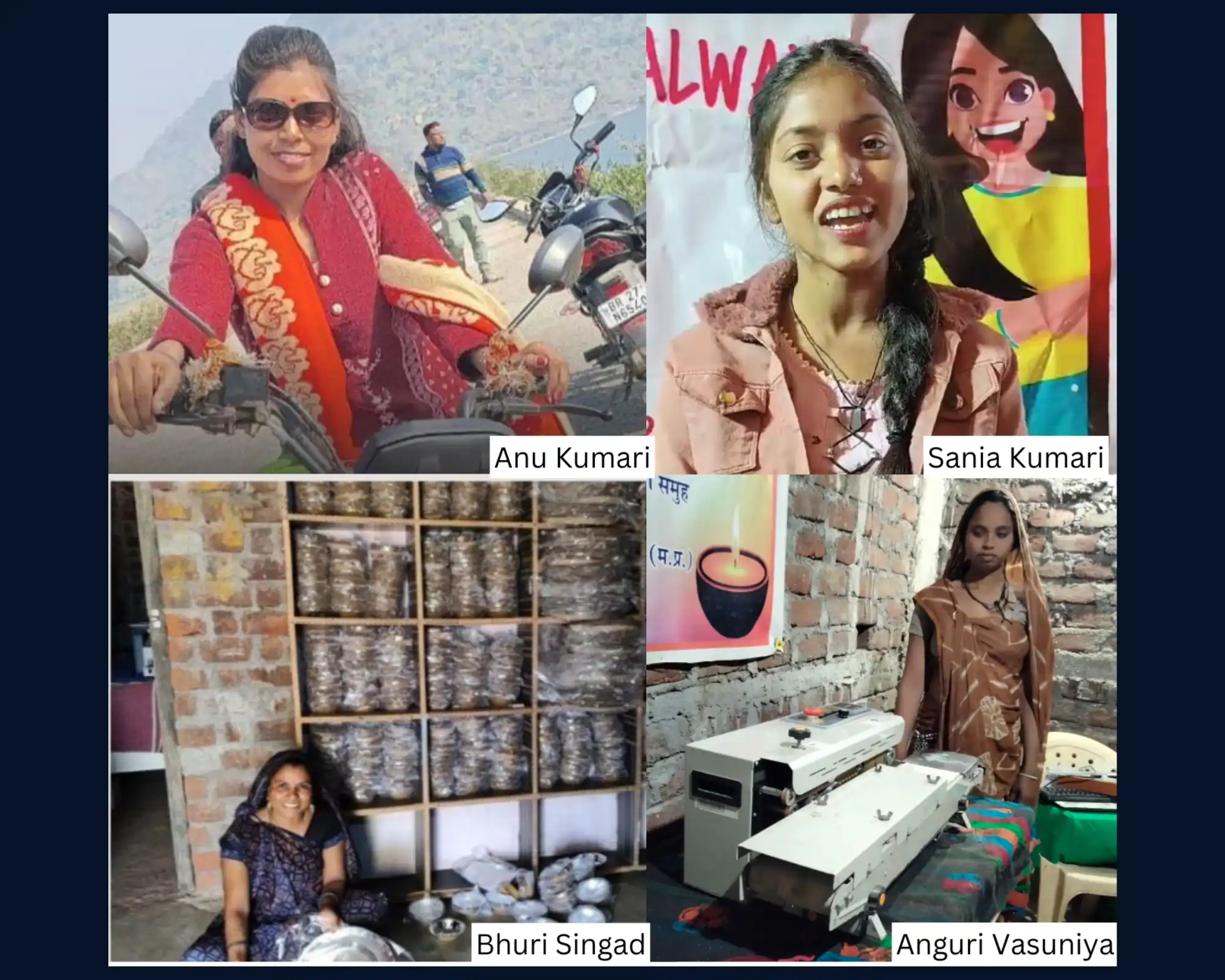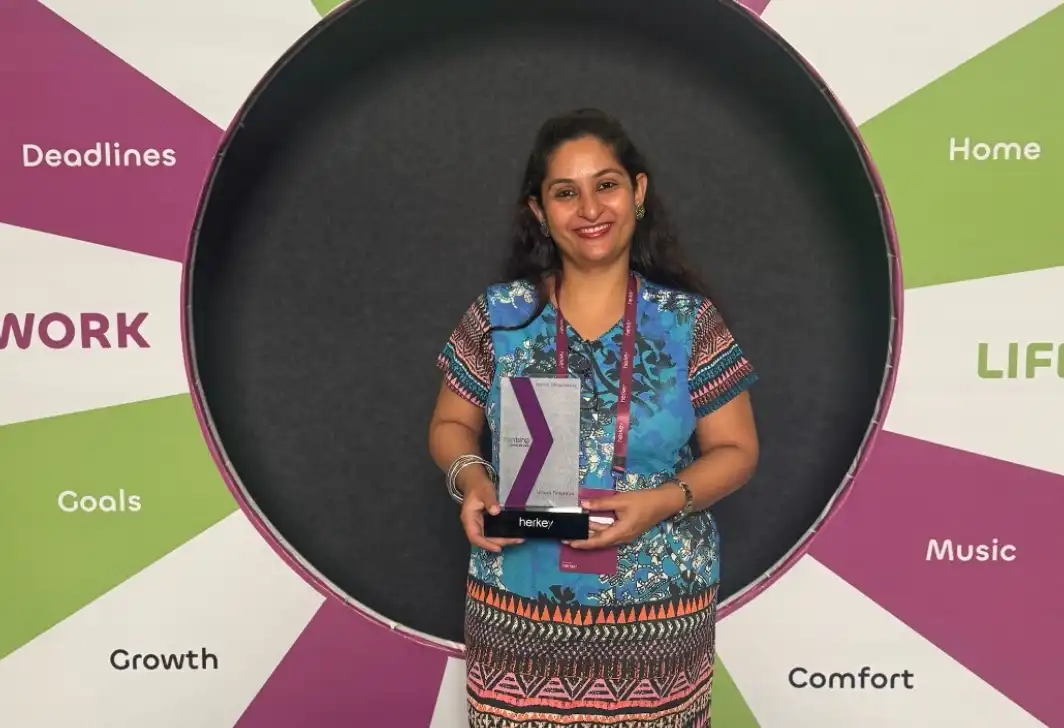In rural India’s tradition-bound, male-dominated social structures, many tenacious women are rewriting the rules of gender justice. With their resourcefulness and grit, they are not only creating behavioural change but also blazing a trail for other women to follow. Their stories tell us of the vast untapped potential of rural women who, with the right guidance and support, can rise above a multitude of challenges and drive social change
An overview of women who are transforming narratives with their work in areas like social justice and reproductive health.
Annu Kumari, Nawada: Annu Kumari, from Amawan in the Rajauli subdivision of Nawada district, Bihar, exemplifies the power of intentionality in a socially backward milieu. Expected to get married at 20, she valiantly resisted social and familial pressure. Guided by her mentor Sheela Devi from Kishori Samooh, a program run by Population Foundation of India, Annu defied societal norms to become a youth champion. She initiated dialogue around menstrual hygiene, nutrition, and reproductive health and advocated against child marriages. She also redirected funds meant for her dowry towards her education and, inspired by a traffic police officer, eventually decided to join the Bihar Police Training Academy, which was around 300km from her village. Today, she has successfully shifted social biases around daughters in her community and has emerged as a role model for young girls.
Sania Kumari, Darbhanga: Sania Kumari, a 12th-grade student from a small village in the Darbhanga district of Bihar, has emerged as a dedicated youth champion, proving that even young individuals can engender meaningful change. As a torchbearer of grassroots efforts, she has successfully helped bridge knowledge gaps in communities where talking about menstruation remains a taboo and girls are expected to keep their period-related challenges to themselves. Her journey began in 2017 when she joined an adolescent group and learned about menstruation. She quickly became an active advocate, working to reduce stigma and misinformation around menstrual health. By 2020, her efforts earned her the title of youth champion, and she became the leader of the Ekta Kishori Samuh (a group under a Population Foundation of India program that has built the capacities of over 10,000 youth to raise awareness about Adolescent Reproductive and Sexual Health, ARSH). She also created a sanitary pad bank to give adolescents easy access to pads. Her determination to drive positive change aligns with her ambition to pursue medicine, demonstrating the power of individual commitment to community well-being. Sania’s story inspires many girls from rural communities, showing that through disseminating accurate information, even a 17-year-old girl can develop a community-centred solution to address a pressing hygiene need.
Anguri Vasuniya, Jhabua: Anguri Vasuniya, from Choti Ghendi Village in Petlawad, Jhabua hails from an impoverished family and studied only up to class 10th. She was then married off at the age of 18 and migrated to Gujarat with her husband, looking for work. Here they toiled as farm labourers for some time. In Petlawad, Anguri came in contact with Transform Rural India’s Enterprise Facilitation Hub (Nari Adhikar Kendra). She also went through the Entrepreneurship Motivation Training (EMT) and sought assistance from the Nari Adhikar Kendra team to start a new business. Aided by Sampark, which facilitates loans for underserved women, she started a business with INR 1.5 lakh, which she gathered from her savings and INR 60,000 from Sampark, She purchased machinery and raw materials for a ‘Rui Bati’ unit and currently earns approximately INR 18,000 per month. Her earnings have helped her to build a new house and she and her family are now living with dignity and enjoying financial stability.
Bhuri Singad, Jabhua: 39-year-old Bhuri Singad is from Gunawad Village in Petlawad, Jhabua. Born in 1984 into a poor family, she couldn’t attend school despite her desire to study. Due to a lack of irrigation facilities in their village, she and her husband Raju Singad worked as farm labourers in Gujarat. In March 2022, Bhuri learnt about an empowerment program run by Transform Rural India’s Nari Adhikar Kendra and later attended a four-day Entrepreneurship Management Training (EMT) in Petlawad block. Learning about various business possibilities and available institutional support, Bhuri discussed her new insights with her husband and eventually decided to start a Dona Pattal (leaf plate) manufacturing unit. Helped by the Nari Adhikar Kendra team, she received INR 70,000 as well as technical assistance to launch the unit. She now earns around INR 10,000 per month and even funds her children’s education in Indore. After repaying the initial loan, she aims to expand her business with a loan of INR 1-lakh which would potentially increase her monthly earnings to INR 35,000.




